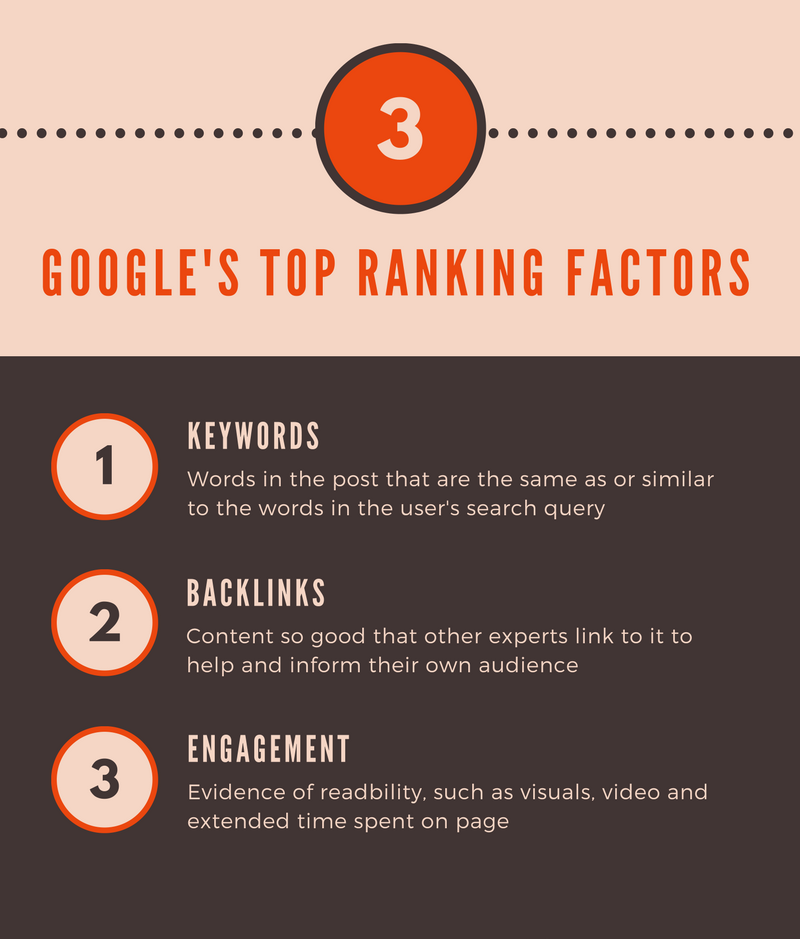8 Irresistible Ways To Up The Likeability of Your Business
When you think about it, it's obvious. We relate to our favourite brands and companies in exactly the same way as we relate to people, by experiencing their personality and deciding (well, feeling) if we like them. We see what we've got in common, how much fun we have with them and whether our ideals align.
We humans haven't had a chance to evolve neural pathways to help us evaluate complex organisations. There's no brand centre to tease apart our instincts from the message a business sends. We reduce organisations to individuals and work them out the same way as we work out people.
It follows then, if you want to be a well-liked company, you should make sure your business has all the personality traits of a well-liked person. Here are 8 ways to get your small business on everyone's Christmas card list.
1. Be confident
Confidence is attractive, or, should I say, insecurity is really unattractive in a person or organisation. Why should anyone do business with you when you don't look like you'd even do business with yourself?
Confident people know who they are and what they stand for. Know your core message — what makes you special — and express it in every communication you have with your customers.
Demonstrate your expertise in written, audio and visual content. Write blogs, get on YouTube or Periscope, or create podcasts for the people interested in your field. Teach others how you do what you do and comment on what's going on in the industry.
On social media, or any public or private forum, show confidence in yourself by answering every question politely, without defensiveness. In the face of negative feedback, acknowledge your mistakes, apologise and make good.
2. Be authentic
Authenticity is about being true to yourself and not trying to be something or someone you're not. It's closely related to confidence because concealing your true self is often interpreted as a sign of insecurity. An authentic person or organisation is trustworthy by virtue of having nothing to hide.
To have an authentic business, you need to know your brand personality and have a story to tell about how you got to where you are. Every company has a purpose higher than just selling something and making money. Repeatedly ask yourself why your business exists until you reach that overarching goal or dream. It could be to put people in control, to keep them happy, or to continuously innovate on their behalf. Whatever it is, make it inspiring.
Championing a social cause adds truly human passion to your business personality. Perhaps you're not big enough yet to donate consistently to charity or contribute in a formal way, but you could tweet support for a cause or a political affiliation, especially if it has a strong social component.
The key to authenticity? Consistency. Document your tone of voice and visual identity, jot down a few words to define your business personality, and maintain a consistent you across channels, just like people do. Infuse each and every interaction with your company with the same experience.
3. Respect your customers
A perceived lack of respect — from a company or person — is always an immediate turnoff.
On social networks, talk like a human to your customers and answer their questions quickly. Never deny a problem or make excuses. Hold your hands up, apologise, thank them for the feedback and do whatever it takes to fix the relationship.
Maintain on-going relationships by saying 'hi' from time to time, perhaps through an email newsletter, and offering the odd bonus or gift such as free delivery or a business or personal health check.
Offer useful content that will help the kind of people who need your business do their job or manage their lives. Make it clear you are emailing them because you feel the content will interest them, and make it very easy to unsubscribe.
It's tempting to sell yourself in your email newsletter, but this can be off-putting online. You'll build more good feeling if you help your customers remember why they came to you in the first place.
A respectful business is organised enough to remember its customers (or immediately access information about them) when they call. If you're small, most of your customers will be in your head, but, as you grow, you might consider business management software to help you keep track and keep everyone happy and feeling important to you.
4. Be positive
People with just a little bit too much of an edge make you wary. Do they like you? Or are they just as cynical about their relationship with you as they are about everything else?
If you're an edgy brand, by all means have an edge, but try to stay away from cynicism or tearing your competitors or customers down. Generosity, helpfulness and optimism will always be more attractive than a negative vibe.
But what about authenticity, you might ask? What if your general business vibe just doesn't match gregarious and fun? First of all, if your business doesn't feel positive, ask yourself if you're still into it like you used to be. What changed? How can you recapture the positive spirit you began with? It might take a change of brand focus to attract customers that are a better fit for you.
Obviously, not all businesses are about fairies and rainbows. Even if you're in a downright serious field, there's still plenty of ways to be positive; about how much pride you take in your work, how much you give back to your community, and how well you care for your customers.
5. Listen
Likeable people are great listeners. They know when to quieten down and let someone else take the floor and their listening skills help them develop deeper relationships.
Research shows that for every customer that makes a complaint, at least 26 don't complain. They just stop being a customer and move on to someone else. It's hard to make things right if no one tells you where you're going wrong! But you can ask. And ask and ask.
A listening business proactively asks how it's getting on, every step of the way. If you send out a survey, make it easy and quick to fill in. Don't ask for a written description as that can be asking a little too much in the moment. Survey, then call or contact the people who had negative experiences to see if you can make things right.
6. Be helpful
There's a whole new type of marketing out there on the interwebs. It's called content marketing and it's about getting your content and your brand in front of the people who need you (and are already considering a purchase) by pre-empting and answering their questions.
Online or offline, the best chance you have of selling anything to anyone is if you make friends with your them first. You can do that by sharing your skills in YouTube videos and generally spreading love and good feeling in entertaining, educating content.
Here's how it works: if someone has a cold radiator, they're quite likely to Google to find out what the problem could be. They might want to know whether they'll need a plumber or a radiator key to help them feel toasty again. If your YouTube video on how to diagnose a broken radiator pops up on page 1 of Google, they're much more likely to call you when it turns out the whole system needs balancing.
Help people out and they'll be more likely to trust you and ask for your help.
7. Be accountable
Supplier let you down? Courier lost the order you know you posted on time? Icelandic volcano, earthquake or act of god, the loveliest brands with the most loyal customers take responsibility for every aspect of the deal.
Pioneer of awesome customer experiences, Amazon.com, has always had a policy of apologising and replacing orders, no matter what's gone wrong. Not their fault if the postman stole your Kindle, but who cares? They own the entire customer experience, and they make it their policy to never quibble.
So even if it's not even slightly your fault, being accountable for every aspect of your customers' experience as they deal with you is a great way to build good feeling into your brand.
8. Admit your mistakes
Of course, you will make mistakes. You're a flawed human running a business that depends on flawed humans to keep it afloat. No matter how hard you try, you'll let people down from time to time. You may even get picked up for it in a public forum like Twitter.
It's mortifying. It can be really upsetting. You tried your absolute best and now someone is dishing the dirt on you in front of all your other customers. This could bring you down! It won't, especially if you deal with it calmly and with kindness.
A complete apology works like this (notice the lack of snivelling excuse):
- Sorry.
- We understand that wasn't acceptable.
- We're going to fix it.
- We're going to do everything we can to make sure it never happens again to you or anyone else.
Your problems are not your customers' problems. It's your job to swallow genuine errors, supply chain issues and logistical nightmares, not theirs. If you apologise unreservedly in front of everyone, with no excuses, you'll turn that bad feeling around in no time.
Get liked
If you want to make the right impression on your customers, think of your business not as a well-organised pile of spreadsheets, processes and calls to suppliers and customers, think of it as a really great person.
Define who that person is and what they stand for, then make sure they're consistent, respectful, accountable, helpful, positive and nice.











